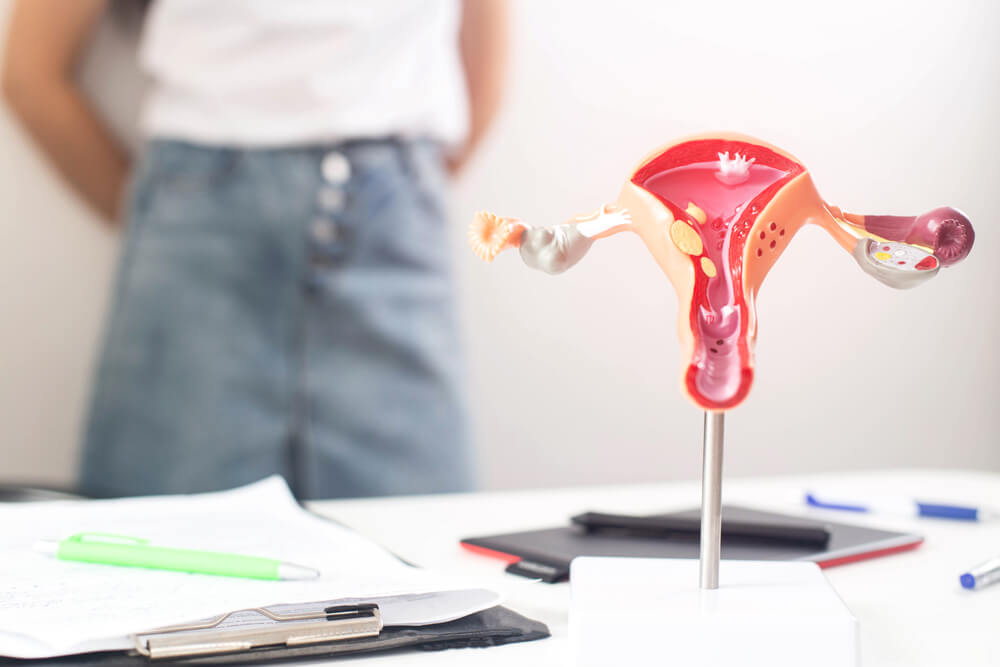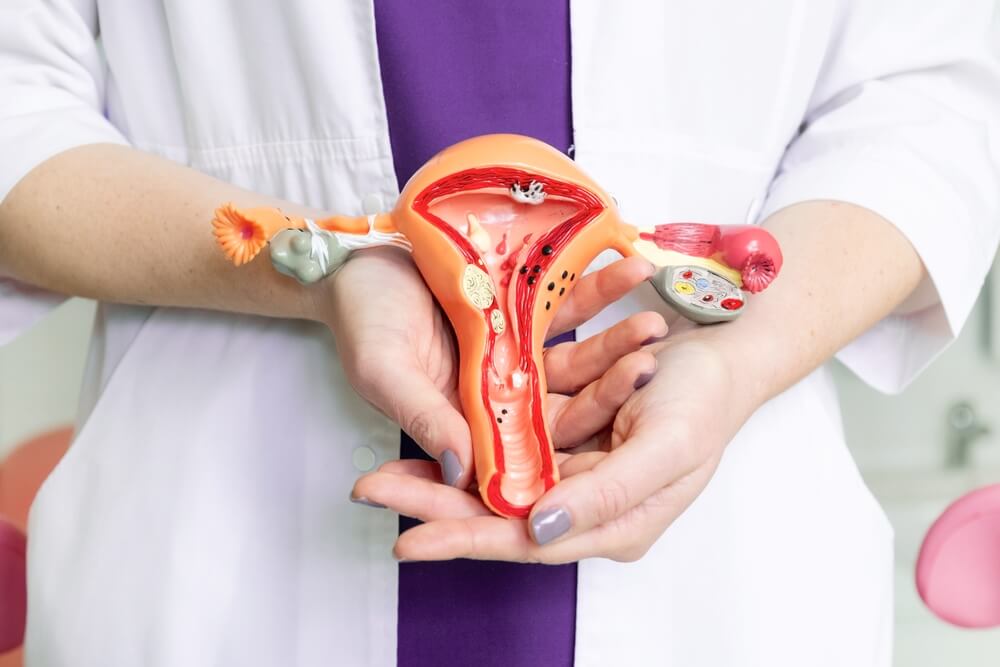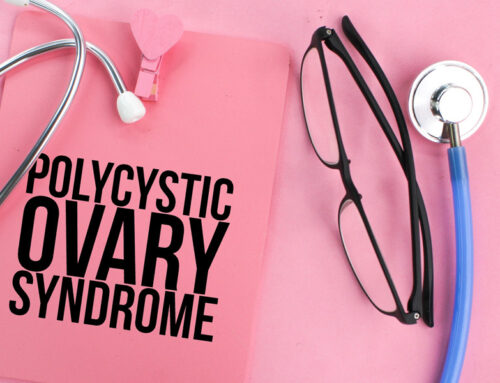Most women will experience varied reproductive health issues at some stage in their life. A decidual cast, while relatively rare, can be quite startling. A decidual cast refers to the endometrial lining of the uterus shedding in one piece, often leaving behind a material that mirrors the shape of the uterus. While it’s usually non-threatening, it can sometimes be mistaken for a miscarriage or an ectopic pregnancy, and women must be fully aware of this lesser-known phenomenon. It typically occurs as a result of hormonal changes in the body, often triggered by contraception methods such as hormonal contraceptive pills.
Paying close attention to changes in the menstrual cycle, particularly those connected with pain or discomfort, can be key to early detection of a decidual cast. It can be helpful to understand what causes it, the symptoms it presents, and the available treatments. This knowledge will not only prevent panic and confusion but also assist in quick and appropriate medical response if it occurs. At Trogolo Obstetrics and Gynecology in Jacksonville, we understand the importance of addressing reproductive health concerns with expertise and compassion.
Despite the uncomfortable experience of passing a decidual cast, such as painful decidual shedding, it is important to remember that this phenomenon falls within the spectrum of normal biological functioning. Women’s bodies react differently to hormonal influences and changes, and awareness of this can greatly assist in navigating these occurrences. This piece will delve into the causes and treatments associated with a decidual cast, offering insight into how best to handle the sometimes alarming experience.
Understanding the Causes of Decidual Cast
A decidual cast, or endometrial cast shed, can be viewed as the body’s unique reaction to a hormone disruption or imbalance. This reaction can occur naturally or be triggered by external factors such as birth control medication and other hormonal treatments. It’s important to fully comprehend the main causes of this gynecological occurrence to readily identify it and obtain timely treatment.
Discussion on Hormonal Imbalances
The menstrual cycle is a complex process governed largely by hormone changes in a woman’s body. The ebb and flow of hormones like progesterone and estrogen can dramatically affect the menstrual cycle and other reproductive functions. When these hormones are in synchronization, things progress as expected. However, abnormalities such as a decidual cast can occur when they are imbalanced.
Estrogen, in particular, is key in building up the endometrium or uterine lining every month in preparation for a possible pregnancy. If a pregnancy doesn’t occur, progesterone levels drop, and the thickened uterine lining sheds—normally in pieces, with blood, during menstruation. But hormonal imbalances sometimes lead to a ‘rare decidual shedding,’ where the entire decidual lining is expelled as a single ‘cast.’
While hormones naturally fluctuate throughout a woman’s menstrual cycle, certain conditions can accentuate this imbalance. Polycystic Ovary Syndrome (PCOS), obesity, and stress can all have an impact on hormone levels, potentially leading to the formation of a decidual cast.
Examination of Certain Types of Contraceptives
Another commonly reported cause of a decidual cast is the use of hormonal contraceptives. These preparations often contain synthetic versions of estrogen and progesterone, which can disrupt natural hormone levels and lead to ‘hormonal contraceptive shedding.’ The shift in hormonal balance alters the usual menstrual process, potentially leading to the shedding of the endometrium as a solid ‘cast’ instead of the typical fragmented expulsion.
Progestin-only contraceptives, also known as the mini-pill, have been linked with a higher occurrence of decidual casts due to their action on the lining of the uterus. Similarly, the use of contraceptive injections, implants, and intrauterine devices (IUDs) can raise the chance of decidual cast formation. It’s important to discuss these potential side effects with a healthcare provider when considering different contraceptive options.
In some cases, medical treatment for conditions like endometriosis and uterine fibroids can also cause decidual casts. The changing hormonal milieu due to these treatments can trigger the decidual lining to solidify and shed as a ‘cast,’ sometimes mimicking the symptoms of miscarriage or ectopic pregnancy and leading to additional stress and anxiety.
Understanding these causes is vital to diagnosing and treating a decidual cast and minimizing the potential distress caused by its symptoms.
Unraveling the Symptoms
Identifying a decidual cast is often a shocking and confusing experience for many women, not least because it can closely resemble a miscarriage decidual cast. It’s crucial to recognize the symptoms and differentiate them from other conditions. While the common symptom of a decidual cast suggests an ‘abnormal uterine shedding,’ symptoms can vary depending on the individual and their specific circumstances.
Recognizing Pain and Other Physical Indicators
One of the most prominent indicators of a decidual cast is strong abdominal pain, often described as severe menstrual cramps. This ‘painful decidual shedding’ is usually acute and may be accompanied by nausea or vomiting due to the intensity of the pain. However, the real tell-tale sign is the passage of tissue that resembles the shape of the uterine cavity, the so-called ‘reproductive system cast.’
This unique decidual cast tissue expulsion can look a lot like an early pregnancy or miscarriage, often causing alarm. Some women may only notice this cast when using sanitary products during their period, so careful observation is key to identifying its occurrence. In fact, a decidual cast is often initially misinterpreted as an ectopic pregnancy cast due to its similar appearance.
Furthermore, hormonal imbalances causing a decidual cast can often result in symptoms like mood swings, bloating, and fatigue similar to those experienced premenstrually, leading to the phenomenon being termed a ‘premenstrual decidual cast.’

The Role of Irregular Menstruation Cycles
One factor that may hint at the occurrence of a decidual cast is irregular menstruation. The hormonal imbalances that lead to a decidual cast can also result in abnormal periods. This may manifest as unusually heavy periods or periods that are more painful than normal, potentially indicating the formation of an ‘endometrial cast shed.’
Women may also experience changes in the color and consistency of their menstrual blood. More often than not, a decidual cast is expelled during menstruation and, hence, may present as a part of the ‘menstrual decidual cast.’ As the uterine lining is shed as a coherent whole, rather than disintegrating into blood and tissues, this can change the appearance of menstrual flow, presenting as clumps of tissue or blood clots.
Being aware of these potential signs and symptoms can help women seek appropriate medical advice quickly and prevent unnecessary distress from misinterpretation of this gynecological event. As with any reproductive health concerns, it’s always advisable to consult with a healthcare provider if irregular symptoms are observed.
Addressing Treatments and Possible Prevention Methods
Once a decidual cast is recognized, it’s crucial to explore the various treatment options and preventive measures available. By addressing underlying hormonal imbalances and making some lifestyle changes, it’s possible to reduce the likelihood of experiencing a decidual cast and manage any associated symptoms. Moreover, early recognition and intervention can help avoid unnecessary stress and confusion that can often accompany this unusual gynecological event.
Medical Interventions and Their Effectiveness
Medical treatment for a decidual cast mainly focuses on addressing the root cause; most commonly, this means managing hormonal imbalances. As hormonal contraceptive shedding is identified as a primary cause, changing or halting the use of hormonal contraceptives might be a recommended action. It’s essential to have this discussion with a healthcare provider, who will take into consideration the individual’s overall health, lifestyle, and future family planning decisions.
In some cases, the healthcare provider may recommend hormonal therapy to help regulate the menstrual cycle, especially for women with conditions like PCOS that cause irregular cycles leading to endometrial cast shed. Treatment may also include pain management for women experiencing painful decidual shedding while ensuring that care is taken to differentiate the symptoms from those of an ectopic pregnancy cast.
Natural Remedies and Lifestyle Changes
While medical interventions are core to managing and preventing a decidual cast, some natural remedies and lifestyle changes could also contribute to improving overall menstrual health. Exercise, stress management, and a balanced diet can effectively help balance hormones and promote a regular menstrual cycle.
Mind-body therapies such as yoga and meditation can have a beneficial impact on menstrual health by reducing stress levels, which may otherwise exacerbate hormonal imbalances leading to abnormal uterine shedding. Nutritional supplements, such as vitamins and minerals, could also play a role in supporting hormonal health.
Healthy communication regarding changes in menstrual patterns is crucial as well. An unexpected decidual cast can be an alarming experience, and talking about it with a healthcare provider, friends, or support groups can help dispel anxiety and provide reassurance.
Ultimately, recognizing the signs of a decidual cast, understanding the treatments available, and knowing how to possibly prevent its occurrence through mindful lifestyle changes can equip women to better manage the complexities of their reproductive health.
Final Thoughts on Understanding the Causes and Treatments of Decidual Cast
ecoding the mysteries of our bodies, especially related to reproductive health, is crucial. Knowledge about phenomena such as a decidual cast, although uncommon, prepares us to handle such situations without getting flustered. While the experience of a decidual cast can be startling, it essentially reflects the body’s adaptation to hormonal disturbances. By understanding the causes – from hormonal imbalances to contraceptive use – we can better appreciate and comprehend our body’s responses.
This knowledge should be paired with a comprehensive understanding of the symptoms, which range from painful decidual shedding to changes in menstrual flow or an unusual gynecological decidual cast being expelled. Rather than causing distress or panic, recognizing these symptoms allows us to seek timely and appropriate health care, preventing complications or misinterpretations, such as confusing the decidual cast with an ectopic pregnancy cast.
Almost equally important to understanding the causes and symptoms is having a grasp on the range of treatment options available. This includes changes in contraception, hormonal therapy, or even lifestyle modifications aimed at balancing hormones naturally. While a decidual cast can’t always be prevented, these methods can significantly reduce the likelihood of occurrence.
However, possessing this knowledge should not replace medical counsel. It is essential to seek professional medical advice when confronting abnormal symptoms or patterns. Every woman experiences her reproductive health journey uniquely. Consequently, individualized medical advice based on personal health, lifestyle, and comfort should always remain the first point of reference in managing our reproductive health.
Conclusion
In conclusion, understanding the causes and treatments of a decidual cast, being able to identify symptoms early on, and seeking appropriate medical advice are fundamental in managing this event. With this information, women are better equipped to navigate these uncommon occurrences, ensuring they stay in control of their reproductive health and well-being. For unparalleled gynecological care in Jacksonville, Florida, entrust your health to the expertise of Trogolo Obstetrics and Gynecology.





